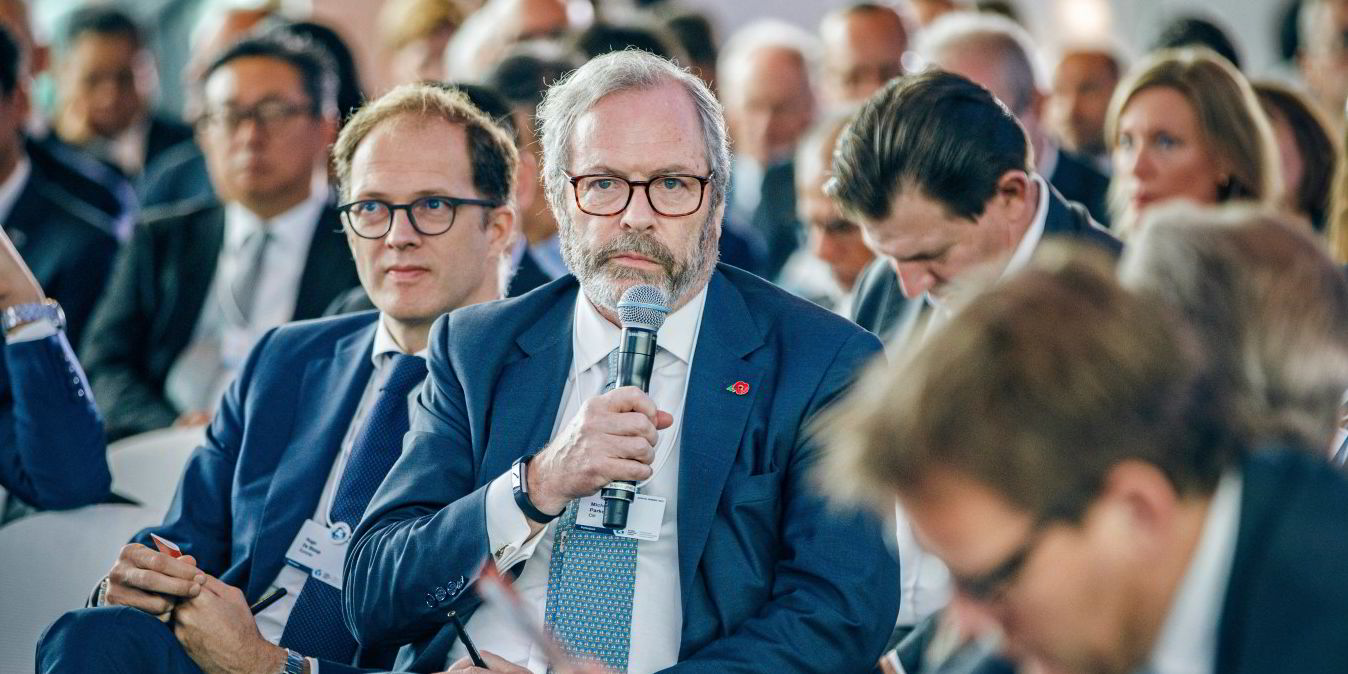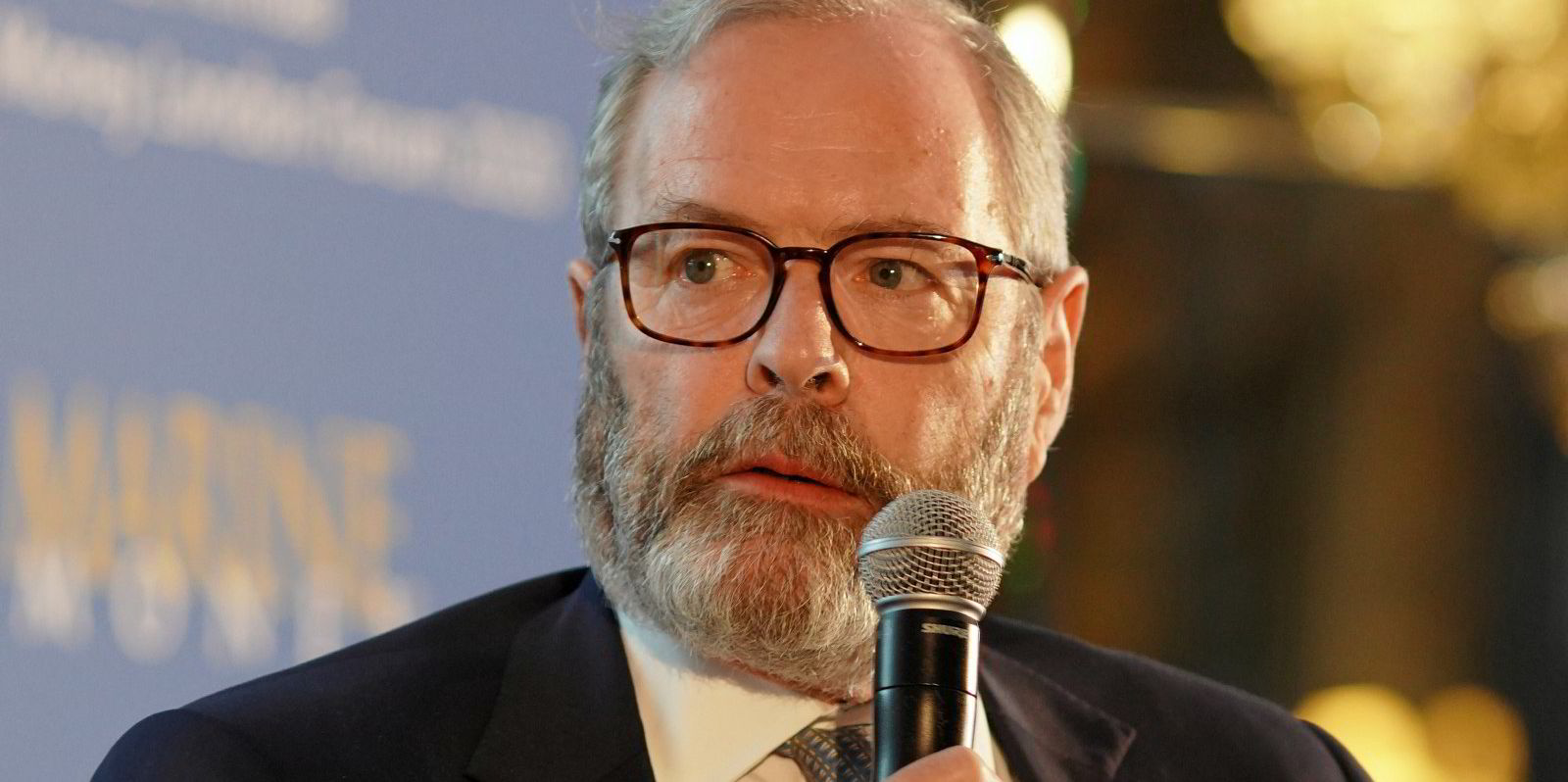Bank signatories to the Poseidon Principles will soon number 23 and roughly 50% of all debt extended to shipping, a chief architect of the green-financing regime said on Tuesday.
The steady build-up of lenders committing to the initiative continues from the 20 last noted in December, when 15 signatories for the first time reported their portfolios' levels of compliance with decarbonisation targets, according to Michael Parker, chair of the Poseidon Principles Association.
He was on a lenders' panel at the 27th annual Hellenic-American & Norwegian-American joint Chambers of Commerce event, usually held in Manhattan but staged virtually because of Covid-19 restrictions.
Parker, chairman of global shipping, logistics and offshore at Citi, told his online audience that the first year's experience with the principles had been not only about the steady growth of the movement, but also about a learning process for the lenders.
Part of that learning has been the realisation that the regime is not just about banks financing the newest vessels possible.
"We're all learning that emissions are just as much about operations as they are the design of the ship," he said.
"The existing fleet is better retrofitted than building new ships with old technology. Age is less relevant. We can use operational data to justify lending to an older ship."
Parker and fellow panellists Martin Lunder of Nordea, Michael Kirk of RMK Capital and Christopher Rex of Danish Ship Finance discussed the extent to which sufficient capital will be available to owners for the greater costs associated with carbon compliance. The panel was moderated by Seward & Kissel partner Lawrence Rutkowski.
Rex argued that recent operating margins for shipowners don't necessarily support the increased investment that will be necessary. This implies a greater contribution of equity on the part of the owner.
"I don't think it's impossible," he said. "But newer investment to lower emissions will need to see more equity put into the equation."
Kirk, however, expressed confidence that availability of financing from alternative and traditional lenders is about to improve after some lean years because of a better supply-demand equation helped by a lower orderbook.
"Debt markets for shipping will be better for the next four or five years. The orderbook is in a much more manageable place," Kirk said.
"Cash-flow yields on ships are as good as they've been for awhile. Ultimately that's going to bring back the equity."
Lunder said his own bank "is more committed to contributing to a sustainable society than ever before".
He observed that the universe of investors in sustainability-linked bonds has outgrown those participating in bonds that are not.
"There are more investors looking to invest, and that's better for the functioning of the market," Lunder said. He believes it is just a matter of time before there is a similar shift in lending.







